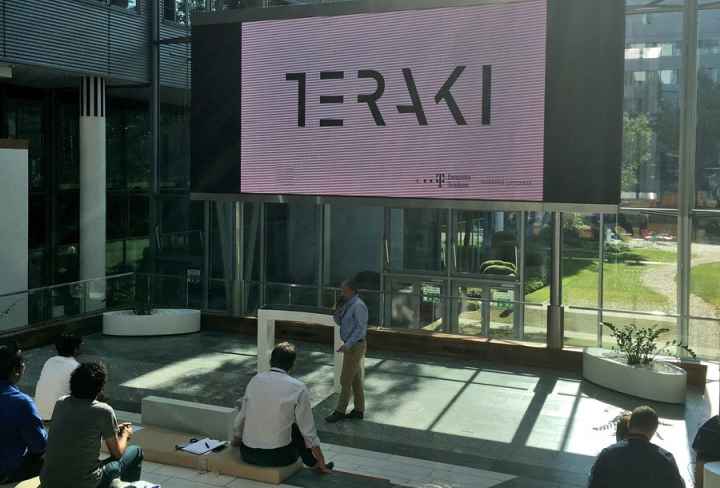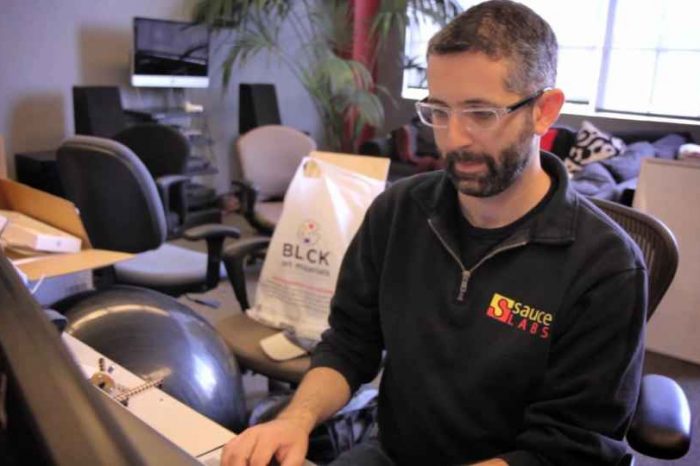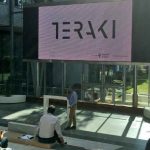Automotive AI startup Teraki secures $2.3 million in additional funding; launches DevCenter for quicker data and AI model training

Automotive AI startup Teraki has raised $2.3 million in additional funding for its mission to provide breakthrough AI and edge data processing software to meet the exploding data demands of the $395 billion automotive electronics industry. The latest backing for the technology platform, which brings a more than tenfold increase in efficiency to the components used in automotive electronics, comes from Hong Kong-based Horizons Ventures and American Family Ventures. Total funding to date amounts to $5.3 million.
In conjunction with the funding, the company also announced today the launch of the Teraki DevCenter—a cloud-based data training and prototyping environment, allowing customers to train Teraki’s algorithms on their data.
Teraki, a Spanish-German big-data reduction startup was founded in 2014 by Daniel Richart, Markus Kopt and Edouard Rozan. Teraki provides breakthrough edge data processing software to meet the exploding data demands of the $395 billion automotive electronics industry. The company’s AI-based Intelligent Signal Processing software delivers a more than 10X increase in automotive chip, communications and learning performance. This makes highly accurate AI applications possible at scale in embedded environments.
“Data driven insights will be key to innovation in the automotive and automotive insurance sectors, as a result, capturing highly accurate information from cars is the basis needed to drive to these insights. Teraki aids in acquiring this information with the highest efficiency and accuracy rates. We are excited to support the growth of the company and its path towards enabling better insurance applications,” says Katelyn Johnson, principal at American Family Ventures.
American Family Ventures is a $200 million fund backed by American Family Insurance, the 13th largest P&C insurer in the US, interested in bringing data-driven products to the insurance industry.
Teraki is the leading provider of embedded, pre-processing software for sensor data in the automotive industry. When embedded in automotive electronic systems, the software enables hardware to process more than 10 times more data without loss of information to train and run machine learning methods of customers.
Teraki’s deterministic technology is compatible with AI and conforms to standards for safety related applications. By applying techniques originally developed for quantum computing, Teraki condenses data to as little as two percent of its original size. This means with Teraki pre-processing applications run more than 10 times faster than implementations based on Neural Network. Teraki pre-processing can work directly with AI chips enabling even higher efficiencies. Alternatively, it can also simply reduce the specs of classic automotive chips, thereby reducing the bill of materials. With respect to sensor fusion, Teraki drastically reduces energy consumption and heat production due to lower computational tasks, while still delivering the algorithm detection and prediction performance that are essential for advanced driver assistance systems (ADAS) and autonomous vehicles.
Daniel Richart, Teraki’s CEO and co-founder says, “Winning the support of these renowned and leading VCs is further validation of our vision to truly enable efficient edge computing and scalable AI applications in the automotive markets. With this investment we will be able to accelerate the time to market for our signed customer contracts and serve the growing customer funnel.”
The company also announced today the launch of the Teraki DevCenter—a cloud-based data training and prototyping environment, allowing customers to train Teraki’s algorithms on their data. Data training is an essential step used to teach AI models or machine learning algorithms how to make data-driven predictions or decisions by building a mathematical model from input data.
Unique to the industry, the DevCenter automates this complex process and provides development teams with the opportunity to quickly train Teraki’s machine learning algorithms based on their own data and to evaluate exactly what performance advantages Teraki’s technology can provide.
“With the DevCenter we have automated data training tasks, allowing development teams to test our solution with their own data more quickly,” says Markus Kopf, Teraki’s co-founder and CTO. “Automating this entire process is complex and difficult. For our current and future customers, this makes it much easier to experience for themselves what Teraki technology can do in terms of edge processing and performance improvements that can lower their hardware and data communication costs, improve their applications and algorithms, and create new possibilities in the automotive systems of tomorrow.”

